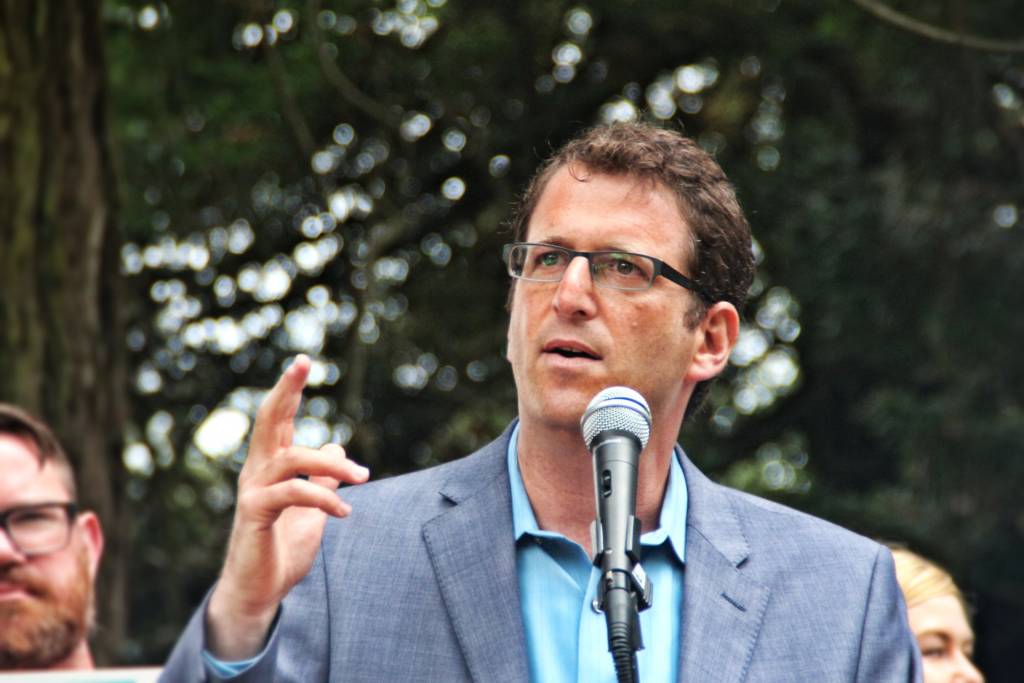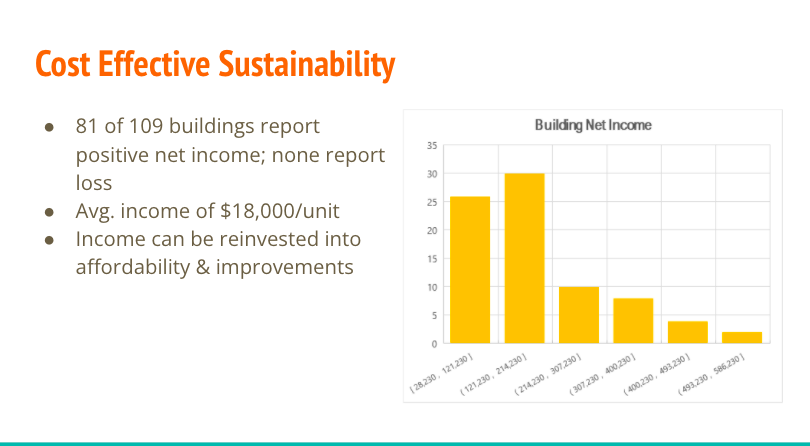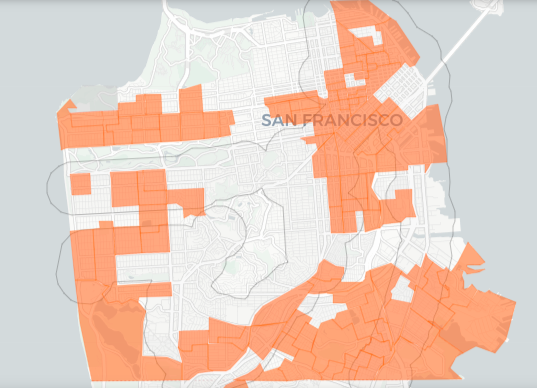While the Chron and the Yimbys are busy complaining that the supes aren’t letting developers build more luxury housing, some board members are moving aggressively to get more affordable housing for the city’s current workforce.
The Land Use and Transportation Committee will hold a hearing Monday/8 on the city’s jobs-housing balance. The hearing will consider, among other things, a recent report from labor and housing groups that looks at the huge gap between the sort of housing the city is approving and what’s needed for the existing workforce.

The battle over the Stevenson Street project, which has now become a key political issues in town, demonstrates the stakes: The city has approved far more market-rate housing than it needs, and far less housing for the essential workers who keep the town running.
The city’s Housing Stability Oversight Board just released a report showing that, since the Covid pandemic, some prices on apartment buildings in San Francisco have come down—a bit.
But they are starting to rise again.

That, the board says, makes the case that the city needs to buy up as many of these buildings as possible, right away.

When the housing folks talk about the “missing middle”—the need for housing for people who make too much money for subsidized units but can’t afford market-rate—they are talking about these existing rent-controlled buildings.
Most of them, the report shows, are not only economically stable but making money. If the city bought them, not only would tenants facing potential eviction be saved, but the income could go to financing future purchases.
This makes so much more sense than relying on private developers.
That’s particularly the case when a new study from UC Berkeley’s Urban Displacement Project shows that Sensitive Communities that are at risk in San Francisco of displacement from market-rate housing development.

As Sup. Connie Chan notes in a column in the Richmond Review:
Thankfully, a statewide “Sensitive Communities” detailed analysis and mapping have been formally published by the Urban Displacement Project of UC Berkeley (sensitivecommunities.org) to assist policymakers across California cities in identifying communities where residents may be particularly vulnerable to displacement. Sensitive communities are those who currently have populations vulnerable to displacement in the event of increased redevelopment and drastic shifts in housing cost, and are currently experiencing displacement pressures. The Richmond District is made up of more than 50% of people of color, and over 60% are renters, many of whom are low-income and vulnerable to displacement. Despite being identified as a “High Resource Area” by the California Fair Housing Task Force, much of the Richmond District has also been identified as a sensitive community by the Urban Displacement Project. While our neighborhood is a wonderful place to live with great schools, vibrant commercial corridors, and access to open space, we must remember that many of our neighbors are working-class people of color who could be displaced in the event of increased redevelopment.
Good housing policy demands a place-based “do-no-harm” framework to guide policies and uphold the right to community planning and self-determination of lower-income communities of color after decades of disenfranchisement on development decisions that affect their neighborhoods. Policies that incentivize increased market-rate development in sensitive communities would result in housing marketed to higher-wage newcomers that are unaffordable and inaccessible to lower-income communities and would lead to increased gentrification and displacement. Rather than imposing additional market-rate development incentives in sensitive communities already experiencing displacement pressures, we need policies that incentivize increased development of 100% affordable housing and mixed-income housing where a majority of units are affordable for lower-income and moderate-income households. Not only is this equitable, it is also in line with our housing targets, which call for a majority of the 82,069 new units to be affordable for low- to moderate-income San Franciscans.
Housing and homelessness comes up again at the full board meeting Tuesday/9. The supes rarely take full advantage of Question Time, the hard-fought policy that lets then as the mayor about policy issues. But this week, Sup. Dean Preston is going to ask Mayor London Breed about her policies on homelessness. There’s so much to talk about (including sweeps, the state of Shelter-in-Place hotels, and in Preston’s district, the mayor’s decision to kill a homeless drop-in center on an empty lot at Haight and Stanyan.
Preston also is introducing legislation that would set aside $64 million from the Prop. I fund to immediately start buying apartment buildings and turning them into permanently affordable social housing.
“The goal of Prop. I was to create a fund for this unfunded need,” Preston told me. “There are all these properties going on the market now, and we need to take advantage of that.”
Preston’s office notes that
Citywide, 109 buildings totaling 1065 units of housing currently for sale. If fully realized, the funds from Preston’s program could translate to hundreds of those units being acquired by affordable housing nonprofits, guaranteeing long term stability for the residents.
More:
A decade ago during the Great Recession, as real estate values declined, institutional investment firms, armed with cash, bought as much property as they could. As a result, San Francisco experienced a consolidation of private real estate ownership previously unseen, a trend that occurred across urban America.
“This is the only plan on the table to make sure residents across the city are not displaced by the whim of international capital,” said Shanti Singh, Chair of the Housing Stability Fund Oversight Board. “Prop I has given us the money, and now we need our political leaders to make good on the promise to deliver permanently affordable, social housing.”
That measure will come up for a hearing Wednesday/17.






